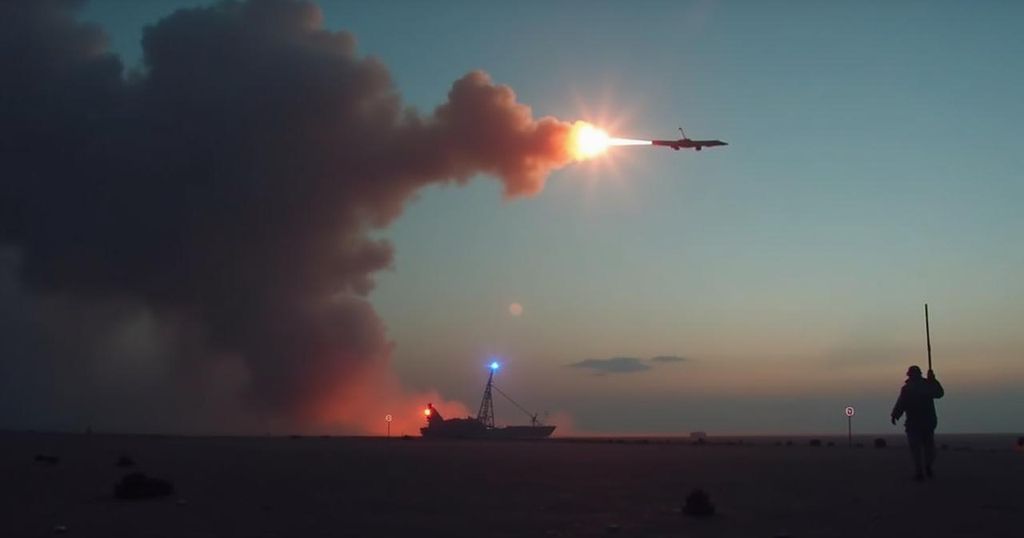US Navy Intercepts Iranian Missiles with Jordan’s Support Amid Rising Tensions
The US Navy successfully intercepted Iranian missiles targeting Israel with Jordan’s cooperation allowing the use of its airspace. The Pentagon confirmed that two destroyers fired interceptors, and an Israeli military leader asserted, “Israel proved its defense capabilities; we will strike back.” Global condemnation against Iran’s attack is building amidst rising tensions in the region.
On October 1, 2024, reports confirmed that the United States Navy successfully intercepted and destroyed Iranian missiles that were targeting Israel, with the operations occurring in Jordanian airspace. According to officials from both the United States and Jordan, Jordan openly permitted the U.S. to utilize its airspace for these defensive actions against Iranian threats. A senior Jordanian official emphasized that such cooperation would extend to any missiles that violate Jordan’s airspace. The U.S. military response included two Navy destroyers utilizing approximately twelve interceptor missiles, with Pentagon spokesperson Major General Patrick Ryder clarifying that these operations did not involve additional military resources. All missiles intercepted were launched from within Iranian territory. Meanwhile, Israel’s military leadership claimed responsibility for thwarting the attack, stating, “Israel proved its defense capabilities; we will strike back.” Controversially, there were reports of repercussions involving individuals within Iran who expressed approval of the missile attacks, as authorities clamped down on such sentiments. This incident highlights the escalating conflict in the region, with U.S. officials strongly denouncing Iran’s actions and calling for global condemnation of the missile attack on Israel. Additionally, various nations have echoed calls for peace and stability amid growing tensions. Some nations, including Germany and the United Nations, condemned Iran’s actions and urged an immediate cessation of hostilities to prevent further escalation of the conflict in the Middle East.
This event arises amid heightened tensions in the Middle East, especially after a recent Iranian missile attack targeting Israel. It is significant as it involves not just the immediate military responses but also the broader implications for regional security and alliances. The fact that Jordan authorized the usage of its airspace marks a critical collaboration between the U.S. and its Middle Eastern allies in counteracting perceived Iranian aggression. The Pentagon’s decisive actions, coupled with the vocal commitments from Israeli defense leaders, underscore the seriousness of the threat posed by Iran’s military capabilities.
In conclusion, the cooperation between Jordan and the United States during the Iranian missile assault represents a vital strategic partnership aimed at countering Iranian threats in the region. Israel’s military readiness and responses highlight ongoing regional hostilities, necessitating continued international engagement and dialogue to promote peace and stability. This incident serves as a stark reminder of the fragility of Middle Eastern geopolitics and the critical role of international alliances in addressing emerging threats.
Original Source: www.jpost.com




Post Comment